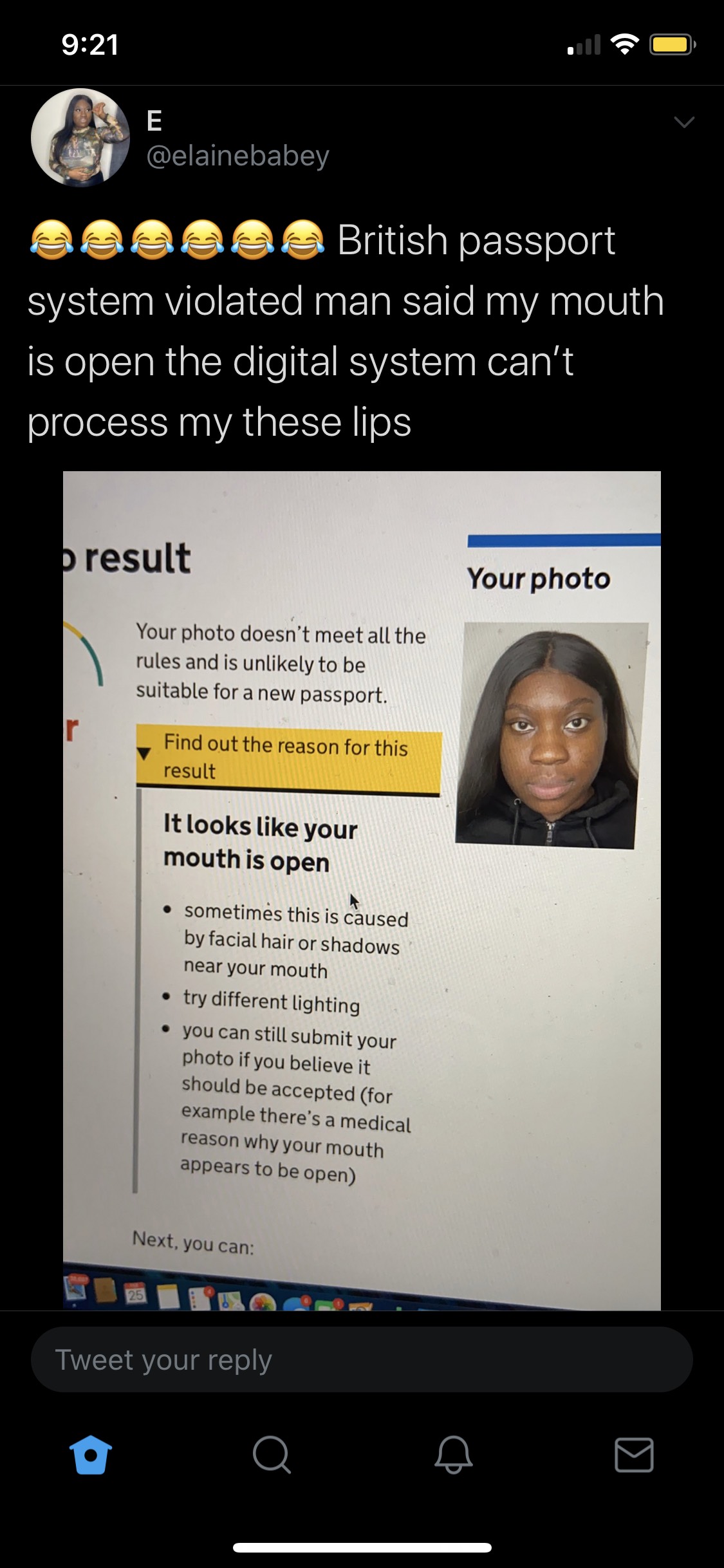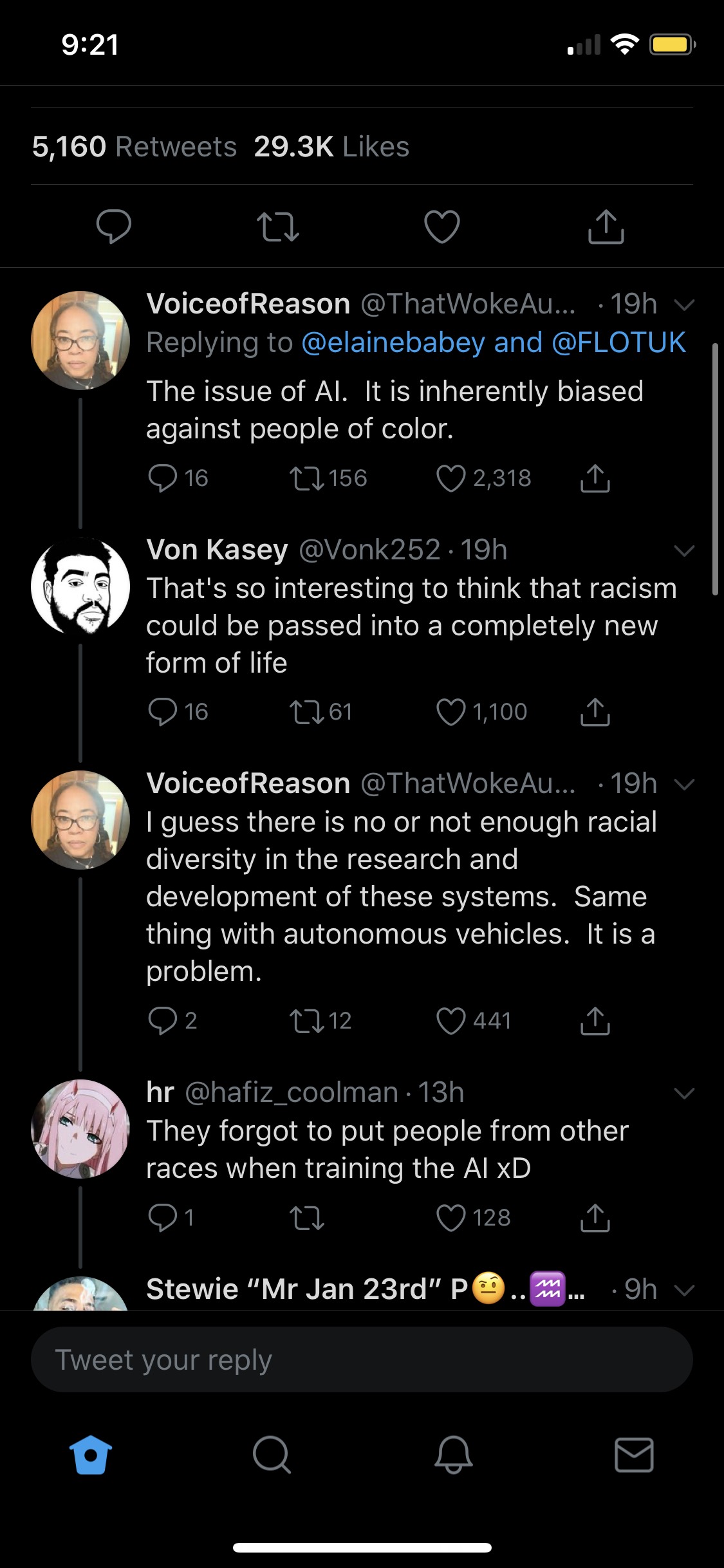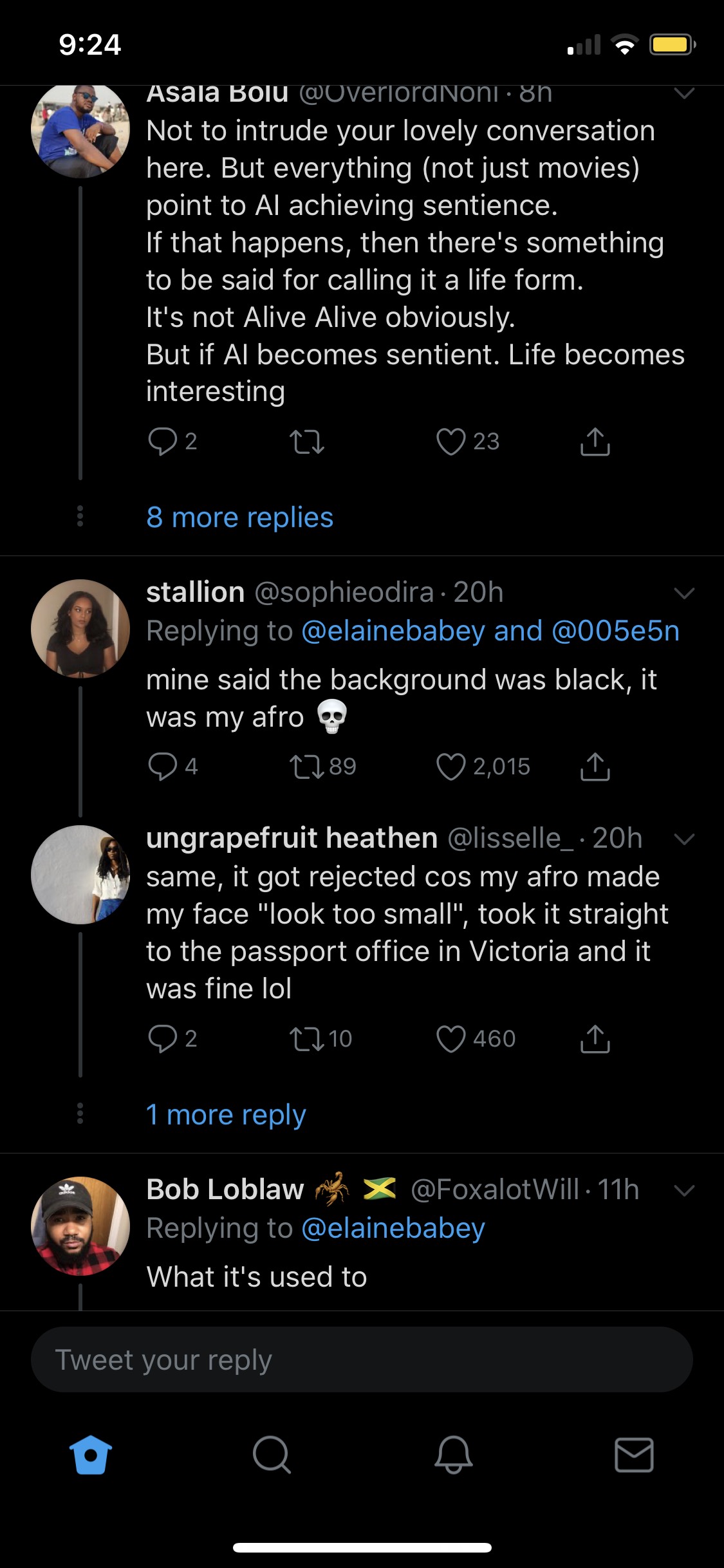Here's a Dog Video
02/26/2020 07:12 PM
I'm pretty sure this is perfect.
this dog literally failed every single test thrown at him to become a service dog and i am scream laughing. but imho he’s still a very very good boy. pic.twitter.com/fGdiUbmw5o
Reducing School Lunches
02/21/2020 12:21 PM
Val sends this in -
Given the the Black Panthers' role in spurring federal support for students' free meals, this article is really interesting to think about with that history in mind, as well as questions of citizenship.
Food Fight: How 2 Trump Proposals Could Bite Into School Lunch
Given the the Black Panthers' role in spurring federal support for students' free meals, this article is really interesting to think about with that history in mind, as well as questions of citizenship.
Food Fight: How 2 Trump Proposals Could Bite Into School Lunch
The Price of Being Incarcerated
02/21/2020 11:38 AM
Isabella sends this in -
I found an article that isn’t exactly what we’ve been talking about in class, but correlates nonetheless. I came across this article about inmates at several West Virginia prisons being charged to read from a free online library. Reading chapters from Dr. Garcia opened my eyes to the treatment of inmates at prisons and made me look into these issues a bit deeper. I was sad to see this slightly-dated article but wanted to share with you anyway.
West Virginia Inmates To Be Charged By The Minute For Reading On Tablets From A Free Online Library
And here is more information about how much it costs for incarcerated people and their families to stay in touch with each other.
Screening Out Family Time: The for-profit video visitation industry in prisons and jails
I found an article that isn’t exactly what we’ve been talking about in class, but correlates nonetheless. I came across this article about inmates at several West Virginia prisons being charged to read from a free online library. Reading chapters from Dr. Garcia opened my eyes to the treatment of inmates at prisons and made me look into these issues a bit deeper. I was sad to see this slightly-dated article but wanted to share with you anyway.
West Virginia Inmates To Be Charged By The Minute For Reading On Tablets From A Free Online Library
And here is more information about how much it costs for incarcerated people and their families to stay in touch with each other.
Screening Out Family Time: The for-profit video visitation industry in prisons and jails
Book, TV, and Movie Recommendations
02/20/2020 06:52 PM
Students in this class have been writing me with wonderful recommendations about books, TV shows, and movies that relate to things we are discussing. I've decided to start a big list and anyone is welcome to add to it. In no particular order, here are the recommendations I've received so far. I am happy to receive more!
Prithika says -
When we touched upon the topic of incarceration yesterday, it reminded me of a book a recently finished reading. It’s called An American Marriage by Tayari Jones. The book talks about the effects of a false accusation for a crime of an African American man from Louisiana and then his subsequent incarceration on his life. I thought it would be a great piece of literature for anyone in the class to read if this topic interests them!
Audrey sends this in -
Jessica send in this TikTok -
I know that we already have moved past the discussion of gendering but I just came across this video and figured I’d share.
Prithika says -
When we touched upon the topic of incarceration yesterday, it reminded me of a book a recently finished reading. It’s called An American Marriage by Tayari Jones. The book talks about the effects of a false accusation for a crime of an African American man from Louisiana and then his subsequent incarceration on his life. I thought it would be a great piece of literature for anyone in the class to read if this topic interests them!
Audrey sends this in -
Jessica send in this TikTok -
I know that we already have moved past the discussion of gendering but I just came across this video and figured I’d share.
Amazing ASL
02/18/2020 11:03 AM
Here's the viral video of Amber Galloway Gallego signing for Twista that I included in Monday's lecture.
And here's the ASL rap battle video I mentioned but didn't show, in case you're interested in exploring more.
And here's the ASL rap battle video I mentioned but didn't show, in case you're interested in exploring more.
Joe Biden on Race and Responsibility in the US
02/11/2020 02:59 PM
This is the video of Joe Biden Sydney described in her lecture. You can find her lecture slides on Canvas / Files / Lectures Slides, if you want to remember the specific context in which she was introducing this clip.
#SayHerName in Ann Arbor
02/11/2020 02:54 PM
Sydney shares these images, which build on the #SayHerName campaigns she mentioned in her lecture.
These two photos including the original #SayHerName poster which included Ann Arbor (!) and a photo of the steps of Lane Hall with the name of Aura Rosser, the Black woman whose death A2 organizers were organizing around when they got involved with #SayHerName. Here are links to articles about the Ann Arbor and Grand Rapids police departments' own militarizing efforts.
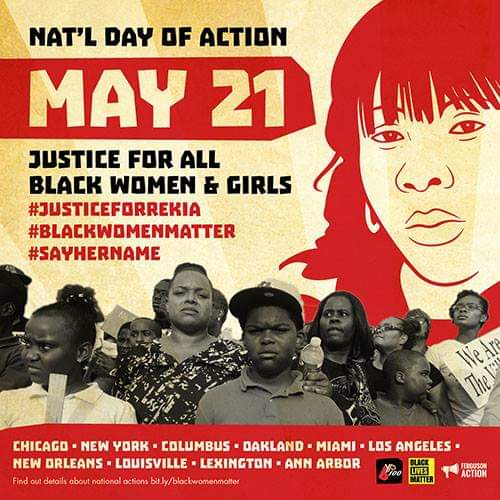
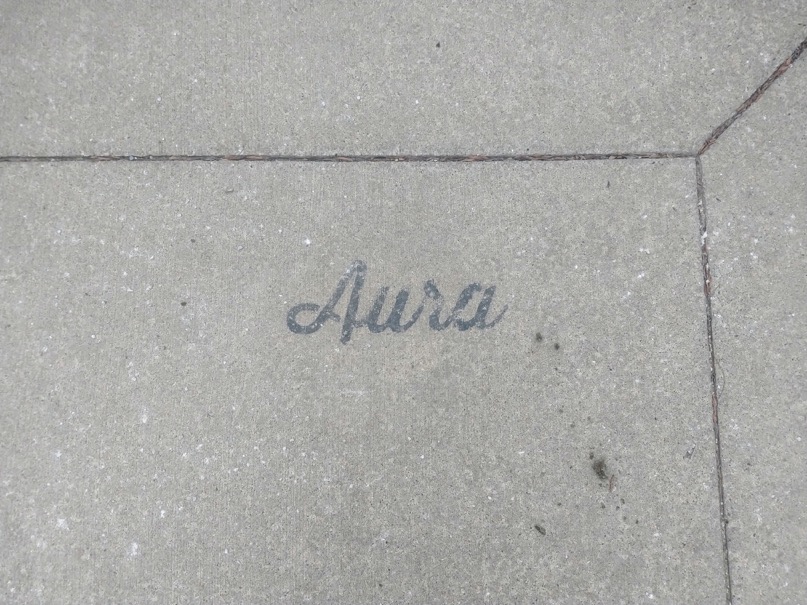
These two photos including the original #SayHerName poster which included Ann Arbor (!) and a photo of the steps of Lane Hall with the name of Aura Rosser, the Black woman whose death A2 organizers were organizing around when they got involved with #SayHerName. Here are links to articles about the Ann Arbor and Grand Rapids police departments' own militarizing efforts.


Oil of BrOlay
02/04/2020 11:53 AM
We are not the only people to notice unnecessarily gendered products! SNL this past weekend ran this commercial:
Andy Murray's Casual Feminism
02/03/2020 07:50 PM
Here we see marked and unmarked categories in action, where male becomes so assumed that it's unmarked and unmentioned. Please note that during the time period the journalist originally mentions - between 2009 and 2017 - Serena Williams actually won Wimbeldon five times, the US Open three times, the French Open two times, and the Australian Open four times.
Drunk History on Claudette Colvin
02/03/2020 07:46 PM
Unnecessary Gendering
01/27/2020 07:01 PM
Maddie sends in this Buzzfeed list of unnecessarily gendered products…
Jenga for the girls. pic.twitter.com/16mw35NBc2
Dude Wipes
01/26/2020 12:21 PM
Osa sends in some examples of unnecessarily gendered products. You can also check out a twitter thread with similar types of products, here.
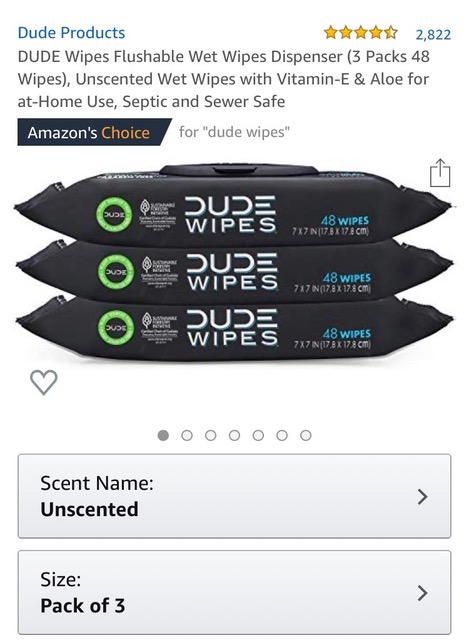

More on Reproduction
01/26/2020 12:18 PM
Gender Satire in "But I'm a Cheerleader"
01/20/2020 11:15 AM
Mari was kind enough to find a great clip from the 2000 film But I'm A Cheerleader, which is a satirical look at the supposed impossibility of being both lesbian and a cheerleader. The main character is forced into a camp to teach her not to be gay, but the counselors are played by RuPaul and Cathy Moriarty. The whole film is just packed with puns, visual jokes, and double entendres. This Film Is Not Yet Rated, a documentary we will watch later this semester, refers back to this film.
The Kinsey Report
01/20/2020 11:12 AM
Mari, one of our wonderful GSIs, sends in this clip from Drunk History about the Kinsey Report, which was mentioned in the Fausto-Sterling reading this week. It's Drunk History so be prepared for drunken, curse-filled nonsense.
Possible Final Project Ideas
01/14/2020 09:41 AM
No pressure to pick up any of these ideas, but I thought it might be helpful to create a list of possible final paper topics as they come up in our class.
In no particular order:
UM Curfews
When we discussed the curfews that UM apparently used to impose on female students, it make me think that someone could do a really excellent final project on the curfews. In lecture, one student asked about punishments - what would happen to a student who stayed out past curfew? That's a great question! A final project focused on this issue could include historical research in UM archives about the curfew, how it was applied, and how students felt about it. (I imagine old issues of the Michigan Daily would surely have some op-eds about the curfew.) And / or you could try to find alums who are willing to talk about their time at Michigan, and their personal experiences with the curfew, as an oral history project. My very rough math makes me think that you'd need to talk with alums who are now in their 70s or so. I think either of these options could be really fascinating and I imagine a large audience would be interested in your findings.
Dating and Height
Based on your reactions in lecture on Wednesday, it seems obvious there are multiple project possibilities about dating, height, and gender norms. You could talk with men about their sense of how height impacts their dating opportunities. You could talk with women about the same issues, etc. There seem to be a lot of different perspectives to take on this.
In no particular order:
UM Curfews
When we discussed the curfews that UM apparently used to impose on female students, it make me think that someone could do a really excellent final project on the curfews. In lecture, one student asked about punishments - what would happen to a student who stayed out past curfew? That's a great question! A final project focused on this issue could include historical research in UM archives about the curfew, how it was applied, and how students felt about it. (I imagine old issues of the Michigan Daily would surely have some op-eds about the curfew.) And / or you could try to find alums who are willing to talk about their time at Michigan, and their personal experiences with the curfew, as an oral history project. My very rough math makes me think that you'd need to talk with alums who are now in their 70s or so. I think either of these options could be really fascinating and I imagine a large audience would be interested in your findings.
Dating and Height
Based on your reactions in lecture on Wednesday, it seems obvious there are multiple project possibilities about dating, height, and gender norms. You could talk with men about their sense of how height impacts their dating opportunities. You could talk with women about the same issues, etc. There seem to be a lot of different perspectives to take on this.
Podcast about Kathrine Switzer and the Marathon
01/08/2020 09:22 PM
This is the podcast I mentioned in the first lecture, about Kathrine Switzer running the Boston Marathon in 1967. It's an episode of ESPN's really excellent "30 for 30" podcast.
There's also this video interview with Kathrine Switzer herself, which ads really powerful details to what I explained in lecture. She beautifully explains how powerful it can be (and feel) to work hard in athletic competition. Or even just to do well at something really hard!
There's also this video interview with Kathrine Switzer herself, which ads really powerful details to what I explained in lecture. She beautifully explains how powerful it can be (and feel) to work hard in athletic competition. Or even just to do well at something really hard!
Responding to Triggering Topics
01/08/2020 09:04 PM
As I said in the first lecture, we are reading and talking about some very difficult topics this semester. I made choices to include these difficult topics in our syllabus not because I want to traumatize any student, nor because I think the world is only miserable, but because unfortunately these are some fundamental realities in our world that reflect key gender structures.
If any student knows that certain topics are not possible for them to engage at this point, that is completely fine and no problem at all. Let me emphasize that knowing your own abilities and needs is never a sign of weakness or lack but instead is a clear demonstration of strength, self-knowledge, and maturity.
Any student is welcome to reach out to either their GSI or myself if they will not be able to engage a particular topic or set of topics. We have alternative work prepared and will be happy to help students navigate those possibilities.
Beyond the specific assignments, any students is always welcome to do what they need to do as we move through the semester. This might involve leaving the room when a given topic comes up, or reaching out to their GSI for addition support, or whatever feels right or necessary in the moment.
Please don't hesitate to reach out to me with any concerns or questions.
If any student knows that certain topics are not possible for them to engage at this point, that is completely fine and no problem at all. Let me emphasize that knowing your own abilities and needs is never a sign of weakness or lack but instead is a clear demonstration of strength, self-knowledge, and maturity.
Any student is welcome to reach out to either their GSI or myself if they will not be able to engage a particular topic or set of topics. We have alternative work prepared and will be happy to help students navigate those possibilities.
Beyond the specific assignments, any students is always welcome to do what they need to do as we move through the semester. This might involve leaving the room when a given topic comes up, or reaching out to their GSI for addition support, or whatever feels right or necessary in the moment.
Please don't hesitate to reach out to me with any concerns or questions.
Policy on e-readers (iPads, Kindles, etc.)
01/05/2020 06:38 PM
Do you know what it feels (and sounds) like to talk on the phone with someone who is watching tv or doing something else? That’s the feeling I’m trying to banish from our classroom. Although I know that people’s minds always wander - and that can be a wonderful thing! - I don’t want our preciously few hours together to have to compete with whatever is happening on tiktok, snapchat, or whatever app the cool kids are into these days.
I am trying to avoid a situation in which students are more absorbed in their technology than the conversation or their own thoughts (about the class). If you can have an e-book in front of you and not be at all disassociated from the class, you are allowed to use it. However, please know that if we have to ask you to stop messing with whatever technology is near you, we will ask you not to bring it back. Therefore if you think you might have a hard time not using the e-book for anything other than looking up a quote or following along with someone else’s point, I recommend you buy or borrow paperback books.
Also, please remind yourself that our phones, especially, are now literally being designed to make you never want to let it go, so you might feel some pangs of discomfort or confusion.

I am trying to avoid a situation in which students are more absorbed in their technology than the conversation or their own thoughts (about the class). If you can have an e-book in front of you and not be at all disassociated from the class, you are allowed to use it. However, please know that if we have to ask you to stop messing with whatever technology is near you, we will ask you not to bring it back. Therefore if you think you might have a hard time not using the e-book for anything other than looking up a quote or following along with someone else’s point, I recommend you buy or borrow paperback books.
Also, please remind yourself that our phones, especially, are now literally being designed to make you never want to let it go, so you might feel some pangs of discomfort or confusion.

Technology Policy
01/05/2020 06:25 PM
Despite my own use of technology in and out of the classroom, I have a strong restriction against students using laptops or tablets or phones in class. At the beginning of the semester, I want to explain my reasoning behind this policy.
I believe that it is incredibly hard not to multi-task when you are sitting in front of a screen, be it a TV or computer screen. And, although multi-tasking might feel good to some people at some moments, every piece of evidence I have ever read or experienced convinces me of the opposite. Multi-tasking hinders listening, thinking, engagement, and learning, all of which we are trying to maximize in the classroom.
For more on this topic, check out this article about how distracting laptops are by Dr. Susan Dynarski here at Michigan. To be clear, I think technology is a wonderful thing and I have no problem with video games or blogs or cat videos, but only in the right context. I do not believe that having access to the internet’s firehose of information is good while you’re in a class session trying to think, listen, and share your ideas.
All that said, if you have a reason that you need to use a laptop or other device in class, please tell me, either in person or via email. I am happy to enable students to use the technology they need to learn and participate.
Remember, too, that all lectures are recorded and all the lecture slides are shared on Canvas, under / Lecture Recordings and / Files / Lecture Slides, respectively.
Extra Credit Opportunities
01/05/2020 03:35 PM
We are all lucky to be at a university with such a fantastic schedule of activities and events. I’m talking about excellent visiting speakers, film screenings, and workshops, among many other possibilities.
In order to reward you for engaging the vast range of opportunities available here, over the course of the semester, I will offer a number of extra credit opportunities. Although the events will shift - indeed, I don’t even know about all the opportunities as I write this at the beginning of the semester! - the process for getting extra credit will remain the same.
1) I will announce in lecture an “extra credit opportunity” and also post it on the lecture Canvas page.
2) If you are able and interested, you attend that event.
3) You write a short reflection on the event, what you learned, what surprised you, and / or how the issues discussed relate to our course. This reflection should be about one page, double spaced, so therefore around 350 words. But if you want to write more, you’re welcome to.
4) You upload that short reflection essay to the lecture Canvas page under “Extra Credit” assignments within one week of the event itself. I.e. if you want extra credit, you have to stay on the ball and write a reflection within a week. You cannot go back and do more extra credits after this deadline has passed.
As long as an extra credit reflection essay meets these requirements, it will receive full credit. I won’t be grading the essays beyond credit / no credit, but I will certainly be commenting on them.
Because I am not sure how many extra credit opportunities will occur over the semester, I cannot now tell you how much credit each individual assignment will be worth. But I can say that all the extra credit opportunities will add up to an additional 5% on your final semester grade. This is a lot but there will also be a lot of extra credit opportunities, so any single one will be worth less than one percentage point.
Although I will track your completed extra credit reflections on Canvas, the total extra points you earned won’t be visible until I calculate your final grade at the end of the semester.
In order to reward you for engaging the vast range of opportunities available here, over the course of the semester, I will offer a number of extra credit opportunities. Although the events will shift - indeed, I don’t even know about all the opportunities as I write this at the beginning of the semester! - the process for getting extra credit will remain the same.
1) I will announce in lecture an “extra credit opportunity” and also post it on the lecture Canvas page.
2) If you are able and interested, you attend that event.
3) You write a short reflection on the event, what you learned, what surprised you, and / or how the issues discussed relate to our course. This reflection should be about one page, double spaced, so therefore around 350 words. But if you want to write more, you’re welcome to.
4) You upload that short reflection essay to the lecture Canvas page under “Extra Credit” assignments within one week of the event itself. I.e. if you want extra credit, you have to stay on the ball and write a reflection within a week. You cannot go back and do more extra credits after this deadline has passed.
As long as an extra credit reflection essay meets these requirements, it will receive full credit. I won’t be grading the essays beyond credit / no credit, but I will certainly be commenting on them.
Because I am not sure how many extra credit opportunities will occur over the semester, I cannot now tell you how much credit each individual assignment will be worth. But I can say that all the extra credit opportunities will add up to an additional 5% on your final semester grade. This is a lot but there will also be a lot of extra credit opportunities, so any single one will be worth less than one percentage point.
Although I will track your completed extra credit reflections on Canvas, the total extra points you earned won’t be visible until I calculate your final grade at the end of the semester.
Thanks to Professor Purkiss
01/03/2020 03:56 PM
When I decided that the visual theme of this website should be "protest," I also realized that my own knowledge and research interests meant that I was finding many more images of recent, or contemporary, protests. Lucky for us all, Dr. Ava Purkiss, a historian focused on African American women, shared images and suggestions with me. She gave me more suggestions than I could use, but I am grateful to Dr. Purkiss for the image of Olive Moore on the Final Project page and Gloria Richardson's amazing expression and gesture on the Discussion Sections page.
I highly recommend you join one of Professor Purkiss' courses if you are able! Here is one of her articles, in case you want to check it out:
"Beauty Secrets: Fight Fat": Black Women's Aesthetics, Exercise, and Fat Stigma, 1900–1930s
Here's one more awesome image she shared with me: young women students sitting on the steps on Atlanta University (as it was then called) around 1900.

I highly recommend you join one of Professor Purkiss' courses if you are able! Here is one of her articles, in case you want to check it out:
"Beauty Secrets: Fight Fat": Black Women's Aesthetics, Exercise, and Fat Stigma, 1900–1930s
Here's one more awesome image she shared with me: young women students sitting on the steps on Atlanta University (as it was then called) around 1900.

Students' Choice - Week 14 topic
01/02/2020 04:48 PM
In the third week of classes, students will get to vote for a topic they would like to add to the syllabus. There are, of course, many, many topics that would be relevant to this course, which is why I want to give you all a chance to vote. I designed this opportunity in order to give more space for students to articulate and consider their own interests, for us to think together about something of particular interest to you. (Remember, too, that all students can design their final project to reflect their own interests.) No matter what topic is picked, we will, of course, consider it from an intersectional gendered perspective.
After you look at the syllabus to get a sense of what we're already considering together, please take a look at this list of possible topics and do two things:
Activism (meaning we would focus on activists and activist methodologies)
Birth Control
Break-ups and Divorce
Climate Change and Environmental Justice
Clothes and Beauty
College Loans / Debt
Digital Privacy and Security
Families
Health and Medicine
Law
Opioid Crisis
Pornography
Sports
Technology and Privacy
White Supremacy
First, is there any topic you might like to add to the list? If there is, email me by Monday, January 20 and I'll happily add it to the list.
Second, please vote in the survey I will send out later in Week 3.
Please take some time to review the topics already in the syllabus before you cast your vote.
After you look at the syllabus to get a sense of what we're already considering together, please take a look at this list of possible topics and do two things:
Activism (meaning we would focus on activists and activist methodologies)
Birth Control
Break-ups and Divorce
Climate Change and Environmental Justice
Clothes and Beauty
College Loans / Debt
Digital Privacy and Security
Families
Health and Medicine
Law
Opioid Crisis
Pornography
Sports
Technology and Privacy
White Supremacy
First, is there any topic you might like to add to the list? If there is, email me by Monday, January 20 and I'll happily add it to the list.
Second, please vote in the survey I will send out later in Week 3.
Please take some time to review the topics already in the syllabus before you cast your vote.
About the Header Image
01/01/2020 12:57 PM
More information about the image used on this page's header can be found here.
